Published
- 05:00 am
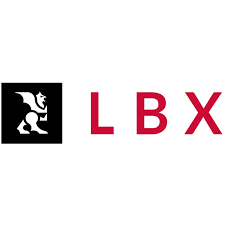
the UK's only dedicated multi-cryptocurrency exchange - has today added Bitcoin Cash (BCH) and Ethereum Classic (ETC) to its offering of cryptocurrencies.
This takes LBX's total coins listed to six (in addition to BTC, ETH, LTC, XRP) and comes just weeks after LBX added Ripple (XRP) to its exchange - showing its senior team are proving good on their promise to roll out 'multiple new coins' on a regular basis.
Both newly listed coins have history with 'forks' - where a new version of the coin is paired off from the original and offered as a new 'upgrade'. Ethereum Classic (ETC) is a pre-fork version of the popular Ethereum and Bitcoin Cash (BCH) forked from the original Bitcoin in August 2017.
LBX Founder and CEO Benjamin Dives, said:
"Since launching, we've proven incredibly popular among UK crypto-enthusiasts, given our low cost trading and excellent app. We're now strengthening the fact we offer more coins than most popular exchanges and are listening to the community in deciding which coins we will list."
LBX opened in November for OTC trades and is currently on-boarding retail customers to its user-friendly app, which is backed by world-class London-based customer service and follows rigorous KYC/AML protocols. Members also receive its acclaimed daily market report, which can also be viewed on Telegram on the LBX News channel.
Ethereum Classic enthusiasts claim it preserves an untampered history of the Ethereum blockchain, free from interference. Bitcoin Cash supporters claim the fork to be a faster, more reliable version of Bitcoin and also claim that it represents the true vision of Bitcoin creator, Satoshi Nakamoto.About LBX
The London Block Exchange is the first multi-cryptocurrency exchange dedicated to the UK market. Based in Canary Wharf, LBX provides a credible, safe and easy exchange for consumers and institutional investors - delivered via its online platform and app.
This is underpinned by educational content, bank-grade security and solid governance, with six cryptocurrencies currently available for trade with more to be added each month.
London Block Exchange (FRN: 902014) is registered EMD Agent for e-wallet functionality by the Financial Conduct Authority under the Electronic Money Regulations 2011.
Related News
- 02:00 am

Linedata, is launching a new version of its fund accounting platform, Linedata Mfact 11.3, streamlining and automating key operational processes to deliver increased efficiency for users.
This latest update offers enhancements in the following areas:
• Bank debt - special logic to handle the unique characteristics of income accruals, receipts and tranche reporting.
• Expenses - the automatic calculation and accrual of expenses in any currency.
• Income interface - support for the interface of accruals, receipts and adjustments and their automatic settlement.
Further process automation enhancements have also been made around settlements and income processing during weekends, holidays and month end reporting periods. An automation layer, sitting above Linedata Mfact’s industry leading accounting engine and audit trails, allows users to achieve improved levels of operational efficiency. Transactional history and balances are easily produced using over 150 inbuilt reports and inquiry screens, with underlying data readily accessible through comprehensive inbuilt extract tools.
Michael Galvin, product manager, Linedata Mfact, says: “We are committed to continually improving our clients’ user experience, providing intuitive business process management capabilities and exception monitoring tools. This latest release supports Linedata’s strategic vision to fully automate the production and approval of the NAV, a time saving and risk reducing development for customers.”
Related News
- 01:00 am
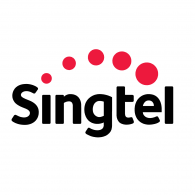
At the 32nd ASEAN Summit today, Singtel gave a demonstration of its initiative to connect mobile wallets across borders.
Mr Arthur Lang, CEO of Singtel’s International Group said, “With the fragmented payments scene in Asia today, interoperability has never been more crucial. We are pleased to support ASEAN’s vision of a more connected community and a single digital market with our cross-border interoperable mobile payment initiative.”
In a first for the region, the Singtel Group recently announced it would connect different telco wallets across markets to offer seamless cross-border payments at physical merchants. This will empower the Group's more than 600 million mobile customers to securely and conveniently pay with their mobile wallets when they travel in Asia Pacific, helping small merchants expand their reach to millions more in the process.
“This service is unique as it empowers travellers of each country to spend abroad with their telco wallets. We want to make this as seamless as using cash and give full transparency on the exchange rates they are getting,” added Mr Lang.
The Group plans to progressively expand this service to other regional associates including Airtel in India, Globe in the Philippines, Telkomsel in Indonesia, and wholly-owned subsidiary Optus in Australia, working within the regulatory frameworks of the respective countries. Other mobile payment apps and Singtel’s Bridge Alliance partners can potentially plug into the platform and gain ready access to the Group’s merchant and customer bases throughout the region.
Mr Lang said, “As a founding member of the Bridge Alliance, we welcome all alliance members across the world to come on board our platform as partners. Our goal is to work with as many partners - both telco and non-telco - to create a smooth payment experience for our customers when they travel abroad.”
Related News
- 02:00 am
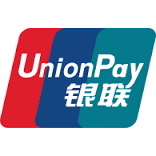
In line with global trends and in support of the UAE’s smart nation drive, UnionPay International and Network International, the leading payment solutions provider in the Middle East and Africa, have extended their partnership to include online and contactless (NFC) payments across the country.
The companies have also collaborated on QuickPass, a secure, efficient and fast contactless payment service by UnionPay, in the UAE, substantially expanding QuickPass’ acceptance reach in the country. The partnership enables UnionPay cardholders to conduct contactless payments on all Network International POS terminals using their NFC-enabled chip cards or smartphones. Network International operates one of the largest NFC-equipped POS terminal networks in the UAE and QuickPass acceptance across all 65,000+ Network International terminals is set to be completed during 2018.
While cash payments still dominate in the UAE, the country is witnessing a transition to electronic payment methods, led by UAE government initiatives to offer citizens and residents innovative digital payment options. Near Field Communication (NFC) technology is among the latest payment solutions being adopted by financial institutions in the region enabling customers to conduct contactless transactions via cards or mobile phones.
“NFC and e-commerce transactions are rapidly picking up momentum in the UAE as customer confidence in the technology grows and smartphone manufacturers and banks are offering more contactless and online payment services in the market. We are also seeing a push at a government level as the nation hopes to achieve Smart City goals which include reduced cash transactions. This has resulted in a remarkable increase of contactless and online transactions this year and, with the expansion of QuickPass and UPOP in the UAE, we expect the numbers to increase further,” said Han Wang, General Manager, UnionPay International Middle East.
UnionPay, the world’s largest payment scheme, and Network International, region’s leading payment solutions provider, have previously collaborated to ensure card acceptance at traditional Network International terminals.
“Network International has played a leading role in supporting the UAE’s transition to cashless payments and we are pleased to expand this effort further through our partnership with UnionPay,” said Samer Soliman, Managing Director - Middle East, Network International. “We are confident that QuickPass acceptance at our POS terminals will help raise the value of contactless transactions in the UAE and are also delighted to support UnionPay customers’ e-commerce transactions with local merchants.”
PhotoCaption: (Left to right) Samer Soliman, MD - Middle East, Network International; Larry Wang, Chief Business Development Officer, UnionPay International; Simon Haslam, Group CEO, Network International; and Han Wang, General Manager, UnionPay International Middle East.
Related News
- 06:00 am

The Western Union Company, a leader in global payments services, announced today that it has added WeChat Pay to its WU GlobalPay for Students product, through its alliance with Geoswift, a payment company specializing in payment solutions in and out of China.
Digital payments are embedded into everyday life in China: payments through messaging app WeChat have risen from circa US$11.6 billion to an estimated US$1.2 trillion from 2012 to 2016, according to a study by the United Nations[1] while separate analysis by Hillhouse Capital found that WeChat Pay accounted for 40% of mobile transactions in China in the first quarter of 2017[2].
Given that in 2015 one in four international students globally came from China, according to the Centre for China and Globalization[3], universities have an opportunity to capitalise on this movement by offering international payment options which better reflect the needs of these students.
“Mobile payments play a key role in the day-to-day life of China’s digitally-savvy population,” said Adam Tiberi, senior vice president, strategy and product, Western Union Business Solutions. “Being able to use WeChat Pay and other popular payment platforms is crucial for Chinese students. As the largest international student population in the world, Chinese students expect universities to offer them simple and convenient payment experiences. Our latest update to GlobalPay for Students allows our education customers to provide an enhanced experience for their Chinese students.”
“China accounts for about a quarter of international students in the world,” said Raymond Qu, Founder and CEO, Geoswift Limited. “The country is instrumental in shaping the trends for international student payments. This poses a huge opportunity for academic institutions across the world to attract Chinese students by providing appropriate payment opportunities. We are delighted to build on our existing alliance with Western Union to further enable this opportunity.”
WeChat has become an integral part of Chinese people’s lives as more and more adopt mobile payments over cash or other payment types. WeChat provides extended partnerships with leading payments providers across the world to enable universities to accept payments via the app.
Western Union launched its enhanced GlobalPay for Students platform in 2017 to enable academic institutions to more efficiently reconcile, refund and track payments from international students. Designed with an intuitive mobile-first user interface and real-time payment tracking capabilities, GlobalPay for Students was developed with the involvement of international students to help improve the overall payer experience.
In addition to online bank transfer and credit card payments, the platform offers users a wide range of online payment options in over 30 countries, including Geoswift (Alipay, UnionPay and Tenpay), POLI Payments, India Net Banking, Trustly and SOFORT.
Related News
- 05:00 am
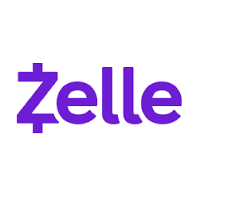
Traveller expectations are at an all-time high. In the age of on-demand, mobile services and the convenience of ‘tap-and-go’ M-Ticketing technology, the public transport industry is under increasing pressure to deliver the same, high-quality interoperable experience with its ticketing solutions.
ABT, M-Ticketing, EMV: the top trends in transport ticketing
While the pressure is on to deliver new services, the benefits of next-gen ticketing are many and wide-ranging. In a rapidly evolving, converging and advancing market, public transport players are faced with several opportunities to meet both the rising expectations of end-users and tap in to new revenue streams. For the transport ticketing market, the time to innovate is undoubtedly now – writes Myung-Hwa Calais, Transport Market Director at FIME.
However, navigating the latest trends and technologies can be a complex and technically exhausting challenge. To help make sense of it all, let’s take a closer look at the front-running trends in the next-generation ticketing race, the benefits and challenges of implementation, and the key considerations players in the transport market need to guarantee a successful project.
Come together: converging services, new form factors and making the move to MaaS
As the industry’s latest buzz-word, it’s hard to avoid the growing popularity of Mobility-as-a-Service, or MaaS. As services increasingly converge onto smartphones, there’s huge potential for transport operators to deliver greater convenience to travellers. In addition, by translating multiple transit solutions, adjacent and value-added services into one simple, seamless app, there’s huge potential for operators to generate new revenue streams.
So, how best to make the move to mobile?
Partnering with handset manufacturers and mobile network operators (MNOs) to deliver a near field communication (NFC) based solution is one option, but not the only one. Host Card Emulation (HCE) technology for example, can offer a simple, considerably more cost-effective NFC solution for those looking to remain independent of OEMs and MNOs. However, security remains vital and additional considerations, such as implementing tokenization, may also be needed.
Wearables are also tipped to have a potentially revolutionary effect on transit ticketing, enabling passengers to ‘tap’ their way through the transit network without touching their wallets or bags. But with knowledge limited on these solutions, ensuring their security, functionality and interoperability across the network poses a real technical challenge that requires unique expertise.
Account-Based Ticketing: easy as A-B-T?
With capacity to simplify maintenance logistics, improve security and ultimately reduce costs, account-based ticketing solutions are proving popular too. As the traveller’s funds are managed in the back-office account and ‘payment’ occurs automatically after travel, ABT gives travellers the flexibility to choose between several fare media to authenticate themselves with, whether that is a smartcard, mobile device or a wearable. What’s more, while solutions can be done in conjunction with EMV, account-based can also be developed independently of EMV, accommodating support for young and unbanked travellers.
To guarantee a successful implementation and realize the full scope of ABT benefits, operators need to ensure solutions are secure and fully interoperable across all fare-media, with the capacity to work effectively both offline and during instances of poor connectivity, managing risks.
Offering open-loop EMV payments
Following the success of Transport for London’s (TfL) implementation and the increasing penetration of EMV globally, it’s not hard to see why many operators are following suit and upgrading their systems to offer open-loop EMV payments.
Accommodating EMV payments in public transport networks offers travellers greater flexibility, convenience and, as with all contactless-centric implementations, reduced queues and quicker throughput. From an operator perspective, this also translates into a reduced need for transit-specific travel cards, cutting manufacturing costs and the need for on-the-ground resource to support issuance. These benefits also readily serve tourist markets, enabling visitors to easily board the local transport network with a fare-media that’s already in their pocket.
Whilst proven, secure and widely adopted across the payments market, the EMV ecosystem is complex, with several players, technologies and guidelines. For public transport players looking to cash in, getting to get to grips with these complexities first is essential.
Deciding the next steps
The opportunities are evident, but to truly make the right choice in delivering high-quality ticketing systems, players need support right from the start of projects to fully evaluate their options. In-depth knowledge of the standards and requirements solutions must conform to, and how suitable these are to their respective systems will be key to a smooth and successful launch.
To truly realize seamless transport ticketing, open standards will also play an increasingly important role. Delivering interoperability and the capacity to transform the business models of the global ticketing industry, understanding and integrating these standards can deliver real value. Partnering with a business enabler helps you evaluate all of the options in line with your strategy.
This ensures the quality of projects from the start, minimising unnecessary delays and guaranteeing a smooth, cost-effective path to market. A thorough testing and certification plan is also key to guaranteeing secure and interoperable solutions first time. During this implementation process, defining a robust quality assurance (QA) system will ensure your solution runs smoothly and efficiently, year after year.
The convergence of payments, mobile and transit holds exciting possibilities, but also increased risk. Expert technical consultancy, from implementation partners well versed in payments and developing new, innovative solutions across form factors, is essential.
Choosing a trusted implementation partner
With over 20+ years of experience ensuring the efficient and successful implementation of card and mobile transaction service, FIME is well-equipped and experienced in supporting the transport market in delivering the next-generation of transit ticketing solutions. With unrivalled expertise in EMV and developing mobile payment solutions, FIME can provide end-to-end support for your projects, from technical consultancy and training, through to design support, quality assurance, field testing and certification services.
Related News
- 07:00 am

DealCloud, a technology leader for CRM and deal management in the private capital markets, and PitchBook, the premier data provider for the private and public equity markets, announce today a strategic partnership to integrate PitchBook data within the DealCloud DataCortex.
With the launch of this partnership, DealCloud clients can now search and query PitchBook's data sets directly from within the DealCloud platform, including hard-to-find financial data on private and public companies, investors, funds, limited partners and service providers. PitchBook's data - which is captured by web crawlers, machine learning technology and verified by specialized data teams - is increasingly sought after by the institutional investment community to make informed investment and business decisions.
"To meet the demands of the competitive climate, today's dealmakers must have powerful and easily accessible data in their toolkit," says DealCloud Chief Operating Officer Lokesh Seth about the integration. "This partnership with PitchBook will allow private capital markets professionals to have a more centralized location for all of their data and will be the fuel behind more meaningful analytics."
Over 400 principal investing firms, investment banks, and operating companies rely on DealCloud's vertical customer relationship management (CRM) technology for storage of proprietary data, deal sourcing, origination and deal management. DealCloud customers can now leverage data from many leading industry providers, including PitchBook, in DealCloud's business intelligence platform and mobile applications, with custom workflows and notifications for immediate actions.
"In today's private capital market, with well over $1 trillion in committed capital sitting in the coffers of private equity and venture capital funds worldwide, the ability to gather and make sense of data as quickly and as accurately as possible is table stakes," said Steve Carver, managing director of strategic initiatives at PitchBook. "Our data, combined with DealCloud's technologies and tools will allow customers to achieve stronger market coverage and to execute more effectively on their business development initiatives."
Related News
- 02:00 am
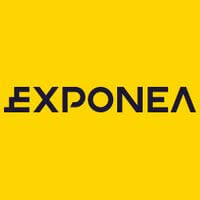
Exponea, the leading global software as a service (SaaS) and Experience Cloud provider has announced it has appointed Steven Ledgerwood as chief revenue officer. Steven brings over 15 years’ experience in the marketing technology sector to the role, leading both small to mid-sized SaaS companies around the world.
The announcement comes as Exponea enters another period of extensive growth, following its ranking last year as the fastest growing SaaS business by SaaS1000 and 2nd fastest growing business above $1m ARR according to Latka100. Exponea recently announced it had become the first GDPR-certified SaaS company in the world.
As chief revenue officer, Steven will take charge of all commercial aspects of the Exponea business, including ownership of revenue, growth and retention. He will focus on driving growth of Exponea’s cloud-based platform, which offers a full suite of personalisation and engagement solutions to drive revenue and engagement throughout the customer journey.
Steven Ledgerwood, chief revenue officer, Exponea, comments:
“Exponea’s powerful GDPR-certified platform is already redefining the way businesses engage with customers and reshaping the ecommerce industry. I’m thrilled to be joining an ambitious, game-changing company that is shaking-up the market and setting a new agenda for customer relationships. By bringing together technical expertise, with effective, personalised content strategies Exponea will continue to transform and lead the industry forward.”
Peter Irikovsky, CEO, Exponea comments:
“Steven is a seasoned marketing tech specialist, bringing energy and extensive international experience to drive our business forward. His ability to deliver highly effective customer, marketing and sales strategies will be essential as we enter our next phase of growth.”
Related News
- 04:00 am
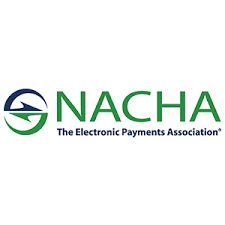
At NACHA Payments 2018, ACH Alert, an award-winning provider of patented, innovative fraud prevention technology for financial institutions of all sizes, announced the launch of two new services: PRO-TECH RT and PRO-TECH CR. The solutions enable account holders to accept or reject incoming real-time payments and incoming ACH credits, respectively.
Financial institutions providing PRO-TECH RT and PRO-TECH CR can empower account holders with greater visibility and control over their finances, which has become increasingly important as real-time payments and same-day ACH transactions become standard.
With PRO-TECH RT, account holders can establish parameters for incoming real-time payments and determine what conditions should prompt an alert. The alert, which can be sent via text, email or both, provides visibility on the status of the payment. Additionally, account holders can set up in advance an approved or blocked list based on factors such as payment amount, frequency, sender and start/end dates to automatically manage future payment decisions in real time.
PRO-TECH CR provides similar support for convenient, interactive control over incoming ACH credits using functions like those offered by ACH Alert’s PRO-TECH solution for debits. This proactive, customer-centric approach to fraud prevention enables financial institutions and their customers to protect their funds and effectively monitor account activity. Account holders enrolled in PRO-TECH CR decide what conditions should prompt an alert. Upon receipt of the alert, they can then return or accept the incoming ACH credit and if desired, add the sender to an approved list.
ACH Alert hosted a real-time payments focus group earlier this year with treasury management professionals from five of its largest financial institution clients and explored the strategic payments issues they face. ACH Alert also invited Mark Majeske, Vice President of Product Development and Strategy for The Clearing House, to join the discussions and share his expertise.
“Making sure that financial institutions are comfortable with the risk of receiving real-time payments is crucial to achieve widespread adoption. Beyond offering heightened visibility, PRO-TECH RT and PRO-TECH CR ensure that incoming payments are processed according to account holders’ preferences, which is vital for certain industry verticals like mortgage originators, insurance providers and property management companies,” said Deborah Peace, chief executive officer of ACH Alert. “For instance, if cancellation, eviction or foreclosure proceedings have started, it is critical that these companies can reject incoming payments.”
“Since its founding, The Clearing House has played a key role in addressing various regulatory and payments issues within the financial industry to support a safe, sound and competitive banking system. Our latest efforts have been focused on the launch of a real-time payments system,” said Tim Mills, Vice President of Business Development at The Clearing House. “We strive to deeply understand the challenges financial institutions face with real-time payments processing, fraud and security. By doing so, we can ensure that all institutions, including community banks and credit unions, can effectively leverage the latest payments infrastructure.”
Related News

Ian Gausden
Executive Vice President, International Real-Time Payments at Mastercard
Imagine that you’re a business owner whose day-to-day running of the business depends on depositing and pulling out funds on a regular basis. see more









